Knowde Enhanced TDS
Identification & Functionality
- Chemical Family
- Polymer Name
- CASE Ingredients Functions
- Composite Materials Functions
- Plastics & Elastomers Functions
- Technologies
- Product Families
- Molecular Structure
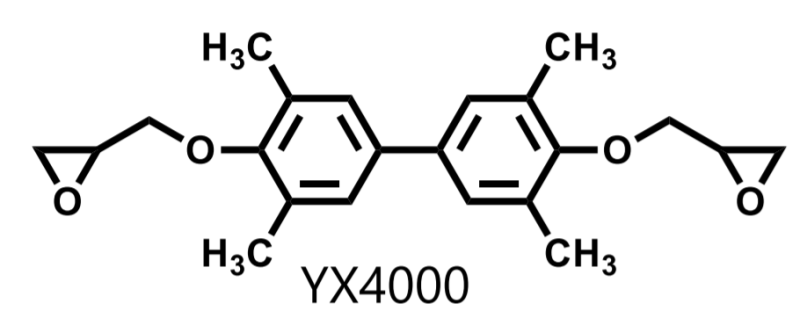
Features & Benefits
- CASE Ingredients Features
- Materials Features
- Features
- Highly adhesive to metal, porcelain, concrete
- Excellent insulation property
- High heat resistance
- High chemical resistance
- High water resistance
- Product Highlights
- Solid type (Flake)
- Significantly low melt viscosity (Melting point: 108°C)
- Good balance between adhesiveness and rigidity against stress.
- Low chroline content
- Low water absorption
Applications & Uses
- Markets
- Applications
- Compatible Substrates & Surfaces
- Coating Type
- Plastics & Elastomers End Uses
- Usage & Application
jER™ YX4000 is a solid-type epoxy resin with well-balanced properties and is used for :
- Electrical and electronic applications(EMC, solder resist, PCB, etc.)
- Composites, Potting & encapsulation materials.
- Powder coating
- Adhesives
- Composites
Properties
- Color
- Physical Form
- Appearance
- Yellow solids
- Physical Properties
- Typical Properties
- Properties Formulation
Value Unit Method jER™ YX4000 100 phr Phenol Novolac 56 phr Triphenylphosphine 1 phr Curing condition 120°C/2h + 175°C/6h
Cured State Properties Tg 147 °C Dynamic Mechanical Analysis
Elastic modulus@40°C 1.6 GPa Dynamic Mechanical Analysis
Elastic modulus@250°C 18 MPa Dynamic Mechanical Analysis
Coefficient of thermal elongation(α1) 70 ppm Thermo Mechanical Analysis
Coefficient of thermal elongation(α2) 191 ppm Thermo Mechanical Analysis
Td5 372 °C Thermogravimetry-Differential, Thermal Analysis (Heating rate: 10°C/min, in air)
| Value | Units | Test Method / Conditions | |
| Density (at 25°C) | 1.15 | g/cm3 | Pycnometer |
| Harsh Hydrolyzable Chloride | 400 | ppm | Potentiometric Titration |
| Melting Point | 108 | °C | Differential Scanning Calorimetry |
| Value | Units | Test Method / Conditions | |
| Epoxy Equivalent Weight (WPE) | 180 - 192 | g/eq | Potentiometric Titration |
| Total Chloride Content | 1000 | ppm | — |
Technical Details & Test Data
- Typical Reactions with Representative Hardeners
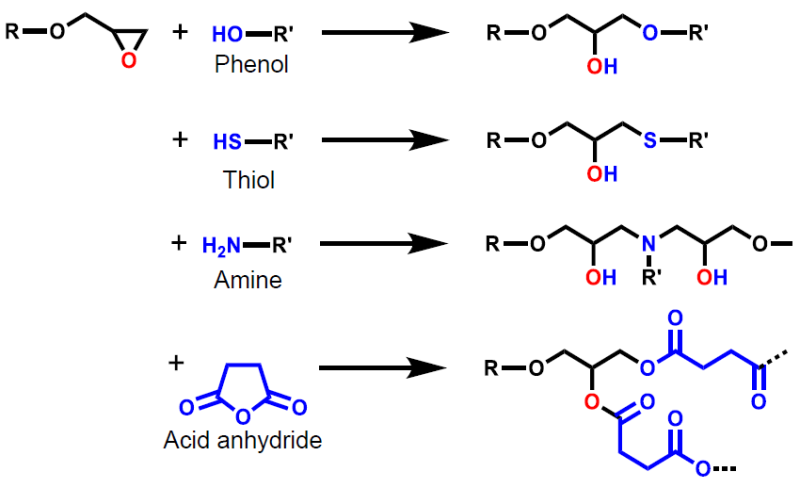
- Typical Reactions with Self Polymerization
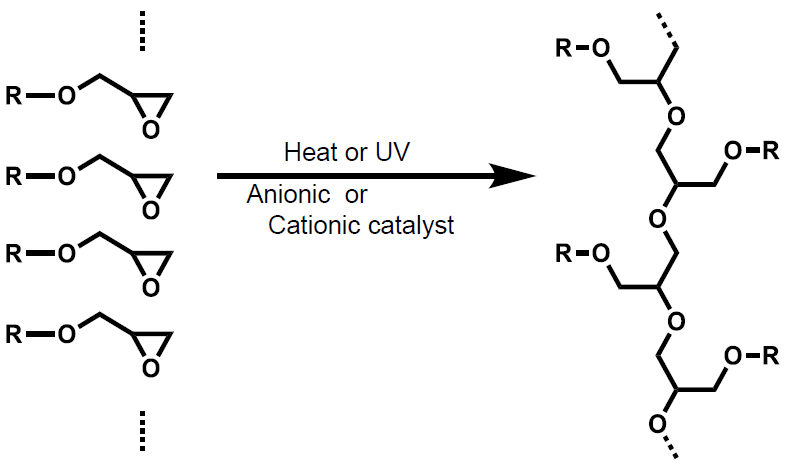
- Selection of Hardeners
Appropriate choice of Hardener for a desired curing temperature
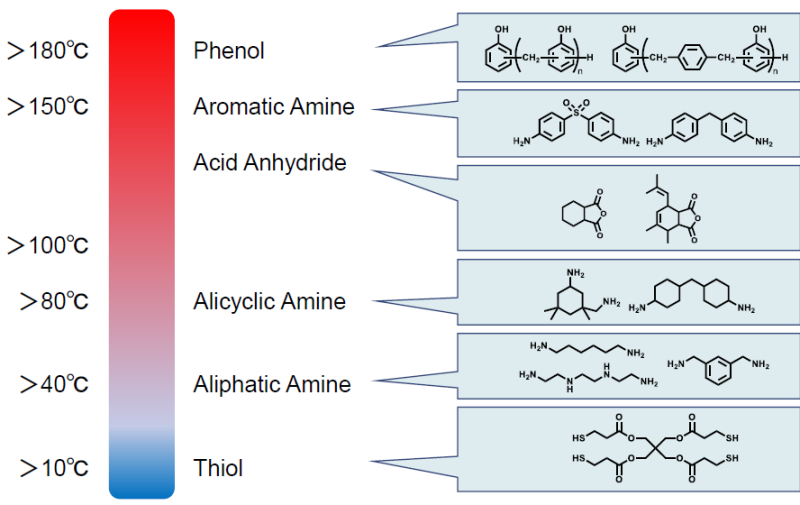
- General Ways to Use Epoxy
- Epoxy resin forms 3D crosslinked network structure
- Abundant choices of Epoxy/Hardener combination
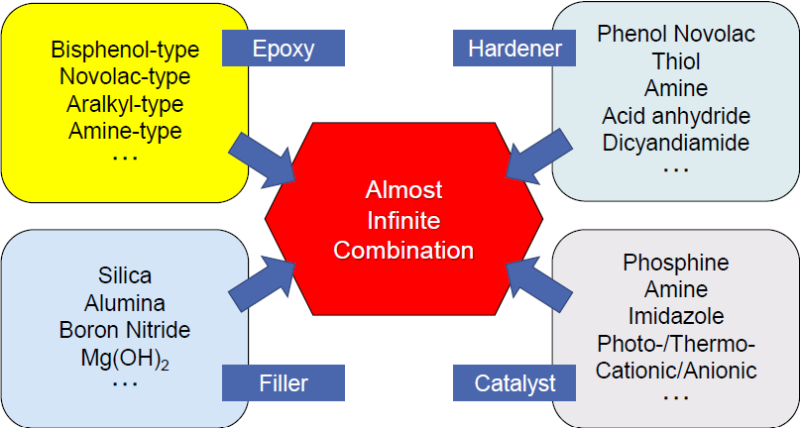
Packaging & Availability
- Packaging Type
- Packaging Information
- Paper bag with 20 kg net
Storage & Handling
- Shelf Life
- 3 months
- Storage and Handling
Carefully read the SDS before using, handling, transporting, storing or disposing. jER™ YX4000 should be stored in tightly closed containers under exclusion of humidity at gentle temperatures. Avoid exposure to direct sunlight. Under these storage conditions the product has a minimum shelf life of three months from date of delivery.